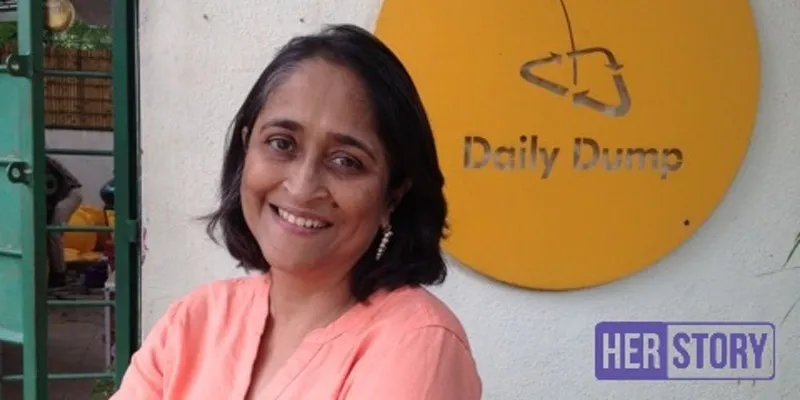'Compostwali' Poonam Bir Kasturi of Daily Dump tells you how to lead a more environmentally conscious life
In a Community Chat on the HerStory Women On A Mission Facebook group, Poonam Bir Kasturi, Founder of DailyDump, shares simple tips to start being more conscious about the environment.
Every day, landfills are fed with heaps of garbage that take thousands of years to decompose. Water bodies overflow with factory waste, and the air is clouded with smoke from vehicles. The planet seems to be inching towards doom, but just sitting around, hoping someone else will do something about it, is not going to change things.
In a Community Chat on the HerStory Women On A Mission Facebook group, Poonam Bir Kasturi, the Founder of Daily Dump, shared her insights about the small things we can do to steer the planet out of the woods.

Poonam Bir Kasturi, the Founder of Daily Dump, says the first thing to keep in mind is segregation while handling household waste.
Here are some excerpts from the discussion:
HerStory Community: What are some of the small changes we can make in our daily lives that can contribute positively to the environment?
Poonam Bir Kasturi:
1. Use non-plastic products anywhere we are.
2. Keep your body and home refreshed, natural and free of all chemical cleaners, odours, and sanitisers.
3. Choose organic food where possible, locate farmer groups to source these. In the long run, organic food is not more expensive.
4. Walk short distances; it helps reduce the pollution from vehicles on the road, often with only one person in a four-seater car.
5. Reduce using the air conditioner at home and in office; open a window or use fans instead. You can reduce the size of your refrigerator as well.
6. Define your own relationship with the earth; make it personal and enjoy the journey. But don't brag and don't guilt your family - it will just put them off!
HS: How do I use kitchen waste to nourish the plants I have at home?
PBK: Although people fear that composting will smell foul and there will be nasty bugs, it's quite a hassle-free process. There are a range of products at Daily Dump that can help you start the journey.
HS: What are some things we all need to keep in mind while throwing out household waste?
PBK: The first thing to do would be segregation. Keep your kitchen waste separate from the dry, hazardous, and sanitary waste.
You can compost kitchen waste either individually or together in your community.
Dry waste is ideally sold or given to recyclers.
Hazardous waste (wires, bulbs, batteries, gadgets) must be stored and then deposited for proper and safe disposal. There are many collection centres for this all over the city.
Sanitary waste is ideally sent to a sanitary waste disposal facility, and there are some vendors who will process this for you.
All other reject waste needs to be reduced to only 10 percent and taken to the landfills by the municipality.
HS: How do I go about composting bio-degradable sanitary napkins?
PBK: Wrap them in newspaper and simply cut them up into the composter with a separate pair of scissors. If you are uncomfortable about mixing it with kitchen waste, get a different composter for this, and add a little kitchen waste into it everyday. Do not add carbon - like cocopeat block or powder, it just needs nitrogen - which is just kitchen waste or lawn clippings.
To be part of more conversations, join the HerStory Women On A Mission group on Facebook.








